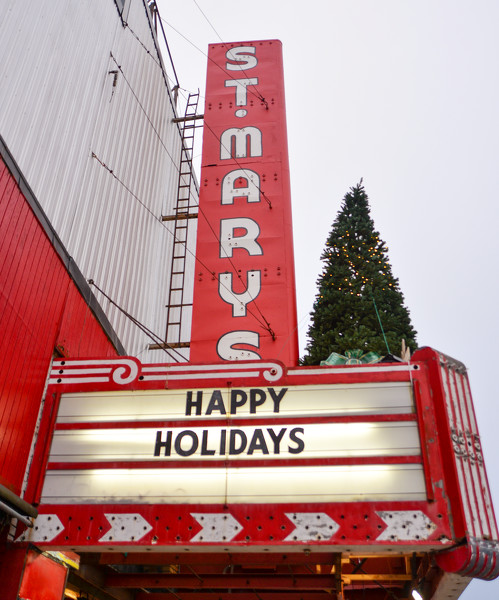
Letters written home by Union Civil War soldier Charles T. Kruse will server as the basis for an original play in his hometown of St Marys.
ST. MARYS - The riveting tale of a St. Marys Union Army soldier who survived a deplorable prisoner of war camp only to die shortly after on the Sultana steamboat disaster will be brought to the stage by a cast of local actors.
Adding celebrity appeal to The Live Stage Production of "Long Journey Home" -a play commissioned by the St. Marys Bi-Centennial Commitee - is Gary Sandy, who starred as program director Andy Travis on the TV show "WKRP in Cincinnati."
Sandy will serve as the play's narrator during performances set for 7 p.m. Aug. 19 and 2 p.m. Aug. 20 at St. Marys Theater and Grand Opera House. It's one of several events paying homage to the city's bicentennial.
The play is centered on the letters of St. Marys native Charles T. Kruse who at 20 left home to fight in the Civil War with the Ohio 50th Volunteer Infantry, said Kraig Noble, who plays a Union Army officer.
The epistles chronicle Kruse's navigation of the unknown and transformation into a man and detail "the rigors and routine of camp life to the horrors of battle," according to a theater news release.
"He matures. He loses some friends … and there's some stories of him talking with his buddies around the campfire," said Ike Coate of Celina, who plays two characters, a Union Army officer and recorder for the town of St. Marys. "Some of his letters are verbatim inside the presentation."
Kruse was captured by Confederates in the Battle of Franklin in Tennessee, one of the bloodiest of the Civil War, and taken to Andersonville, a prisoner of war camp known for its sordid conditions, according to Coate, a past president of The Western Ohio Civil War Roundtable.
Andersonville operated for 15 months.
"Forty-five thousand men were housed at Andersonville at one time. It was designed for 10,000," Coate said. "Thirteen-thousand men died there, more men - Union guys - died there than at the Battle of Gettysburg and Antietam."
Kruse somehow managed to stay alive and was released in April 1865. Homeward bound, Kruse was one of more than 2,000 people that were herded onto the Sultana, a steamboat with "a patched-up boiler" designed to hold 367 passengers, Coate said.
The boat set out for a fateful journey up the Mississippi River that would spell doom for Kruse and others.
"In between Vicksburg and Memphis, Tennessee, the boiler blew up and over a thousand of the people on board died," Coate said. "The reason why it never got into the news was the war had just ended. Lincoln was just assassinated."
The story of how Kruse became the subject of a local play is also fascinating. Coate said Todd Spieles, a retired chiropractor from New Knoxville, discovered Kruse's letters and developed a presentation around them.
Michael Hurwitz, a consultant for the theater and grand opera house, happened to attend one of the presentations.
"He saw it and he was very much impressed," Coate said.
Hurwitz went on to write, direct and produce "Long Journey Home." The play relies on the talents of over a dozen local actors, among them Celina's Bill Sell who will reprise his impersonation of Abraham Lincoln, according to Noble.
"Kind of telling the story of the Civil War from the perspective from the actual solider on the ground, so to speak," Noble said of Sell's portrayal of Lincoln.
The play is also described as a multimedia presentation employing period costumes, props, music and videos.
A companion book will be available that elaborates on Kruse's story and contains the entire collection of letters and the play in its entirety, according to the release.
Tickets can be purchased at www.grandoperahouselive.com/tickets or Minster Bank in St. Marys. Tickets will also be sold the day of the show.
Ahead of the performances, the theater and grand opera house starting at 4 p.m. Aug. 18 will present a Civil War exhibition, lecture and Civil War-era concert by Loco Foco, an act which blends early Euro-American and African American musical elements.
Also lined up are vendors, exhibits and authors, including Gene Eric Salecker who will give a presentation, "Destruction of the Steamboat Sultana: The Worst Maritime Disaster in American History."
Admittance to the exhibition, lecture and concert is free.


